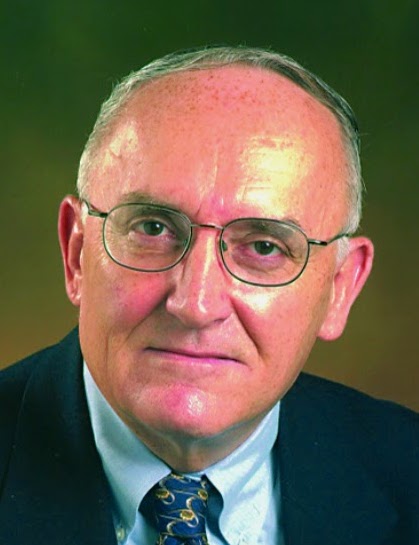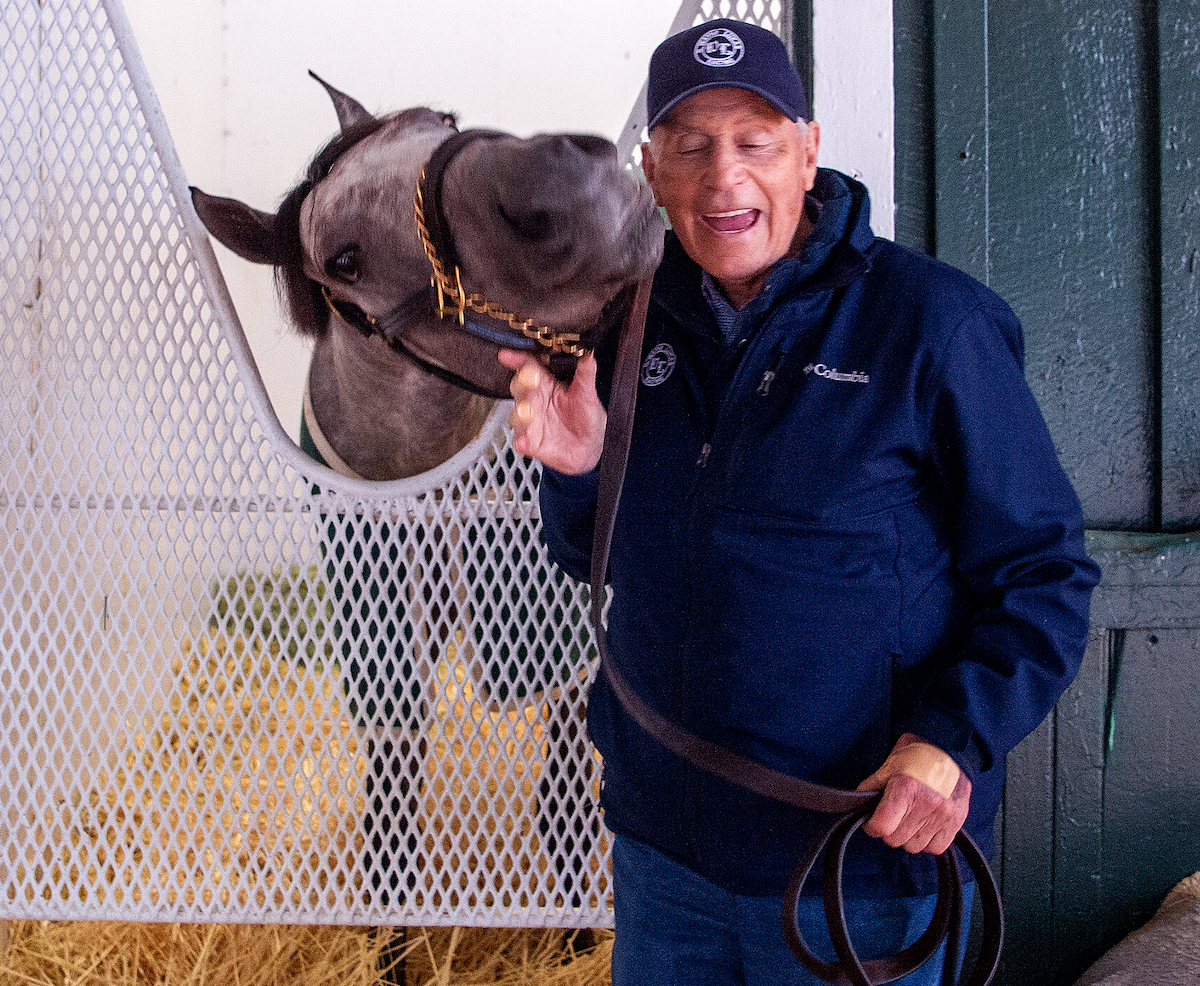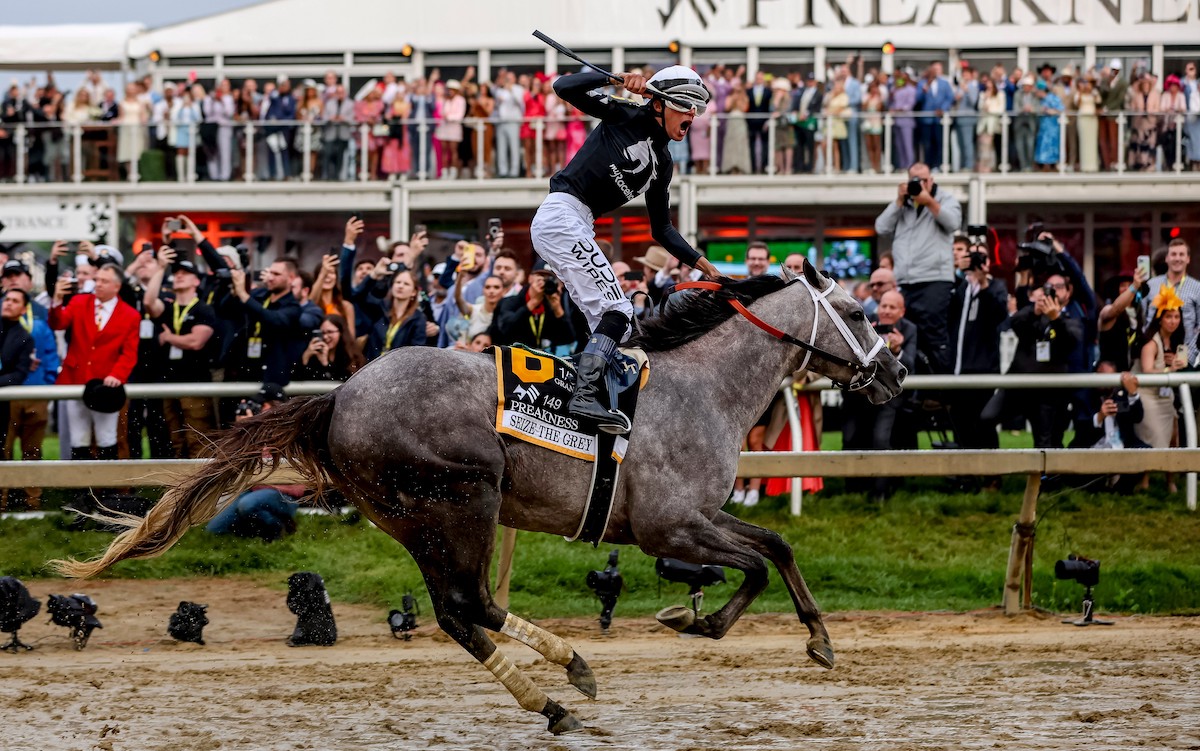
Following a 15th win in a Triple Crown race for D Wayne Lukas with Seize The Grey in the Preakness Stakes, Bill Christine reflects on a jewel of a trainer
 Wayne Lukas, the Hall of Fame trainer, is three years older than me and I am 85, and he is still winning major races, and there is something more than slightly disarming about that.
Wayne Lukas, the Hall of Fame trainer, is three years older than me and I am 85, and he is still winning major races, and there is something more than slightly disarming about that.
Wearing a familiar Stetson and needing a cane, there was Lukas, in the shadows of the cupola at Pimlico, smiling that perfect-32 smile, after a longshot named Seize The Grey had won the Preakness and given his trainer a 15th Triple Crown win.
Seize The Grey was supposed to be a one-turn miler, but Lukas, with a touch of the poet, has always said that you can’t win unless you're in, so five days before the race he dropped Seize The Grey's name into the entry box, then licked his chops a couple of days later when Muth, installed as the heavy favorite, was shelved with a temperature.
 Of course Lukas still had to beat Mystic Dan, the Kentucky Derby winner, but he is, pardon the expression, old hat at that. The first time he won the Preakness, a full 44 years ago, it was with Codex, who won a brawl over Genuine Risk, the filly who won the Derby. Codex missed the Derby through an oversight; Lukas had neglected to make him eligible.
Of course Lukas still had to beat Mystic Dan, the Kentucky Derby winner, but he is, pardon the expression, old hat at that. The first time he won the Preakness, a full 44 years ago, it was with Codex, who won a brawl over Genuine Risk, the filly who won the Derby. Codex missed the Derby through an oversight; Lukas had neglected to make him eligible.
Codex controversy
Many of Lukas’s Triple Crown wins – four Derbys, seven Preaknesses and four Belmont Stakes – came with a dollop of the dramatic, and the win by Codex is still arguably at the top of that list.
While the stewards at Pimlico looked the other way, Angel Cordero, riding Codex, forced Genuine Risk toward the middle of the track, and even struck the filly in the face before they reached the wire.
The Daily Racing Form, which seldom editorialized about anything, came down hard on Cordero, and even altered the footnotes for its official race chart a couple of days after the race.
But after a drawn-out two-day hearing, held after the Genuine Risk camp protested the outcome, the state racing commission let the result stand. I remember the hearing for its verbosity: one of the Pimlico stewards began his testimony with a long-winded recollection about the war-surplus store where he bought his field glasses!
Lukas and Cordero were unapologetic. Lukas plays with as much zeal as the next guy, but at the same time one of his enduring virtues is his respect for the opposition, an uncommon sense of sportsmanship in a hard-bitten game.
At one of Lukas’s Preaknesses, a rival horse was seriously injured. An hour after the race, while the horse’s handlers wrung their hands at the barn, waiting for transportation that would take the colt to Philadelphia for emergency surgery, Lukas went out of his way to stop by. “Don’t worry,” he told them. “He’s in good hands. They can do amazing things with injured horses nowadays.”
On Derby day this year – another Lukas horse, Just Steel, finished 17th – I was struck by an NBC interview Wayne did a couple of hours before the race. After it was over, Lukas said on camera to the interviewer: “Hope you have a good show.”
 I thought to myself: when was the last time any sports figure – ballplayer, manager, coach, league or team executive, jockey, horse trainer, anybody – closed out an interview with well wishes for the interviewer?
I thought to myself: when was the last time any sports figure – ballplayer, manager, coach, league or team executive, jockey, horse trainer, anybody – closed out an interview with well wishes for the interviewer?
Marfa the Mugger
Which is not to say we didn't have our ups and downs. Around the time Lukas had a horse named Marfa in the mix for the Triple Crown, there was a falling out. Marfa was a rogue, a colt who took no prisoners when he ran, and I began calling him ‘Marfa the Mugger’ in print.
Lukas didn't care for that, and it occurred to me that I was now getting a lot of one-word answers to my questions, instead of the thoughtful colloquies he was known for. I kept my distance for a while, and time seemed to heal the rift.
Of all Lukas’s Preakness wins, the most difficult was with Tabasco Cat in 1994. Tabasco Cat was the runaway horse who had clobbered Jeff Lukas, the trainer’s son, one morning at Santa Anita, almost killing him and causing neurological damage that in effect was the beginning of the end of a potentially promising training career.
Jeff Lukas ran the New York division of the far-flung family stable and was most responsible for the development of Winning Colors, the filly who gave Wayne his first Derby win.
Wayne praised his son all the way through that horse's career, but now, with Tabasco Cat winning at Pimlico, he was in the awkward position of lauding a colt who had been so devastating to his family. Tears were unavoidable, and then Lukas had to endure the same emotional tug-of-war three weeks later, when Tabasco Cat also won the Belmont.
It was for the late Bill Nack, doing a Lukas profile for Sports Illustrated, to happen across an anecdote that defines Lukas’s lifelong work ethic. After spending the morning training his full barn at Santa Anita, Wayne went home for a breather before returning to saddle a horse in one of the early races that afternoon.
“I'm going to lie down,” Lukas said to his wife. “Wake me up in seven minutes.”
• Bill Christine covered every Triple Crown race from 1982 through 2005 for the Los Angeles Times. He is working on a novel set in 1960s Baltimore
• Visit the Preakness Stakes website
A tale of two states: is HISA fostering a divide between the haves and the have-nots?
View the latest TRC Global Rankings for horses / jockeys / trainers / sires


